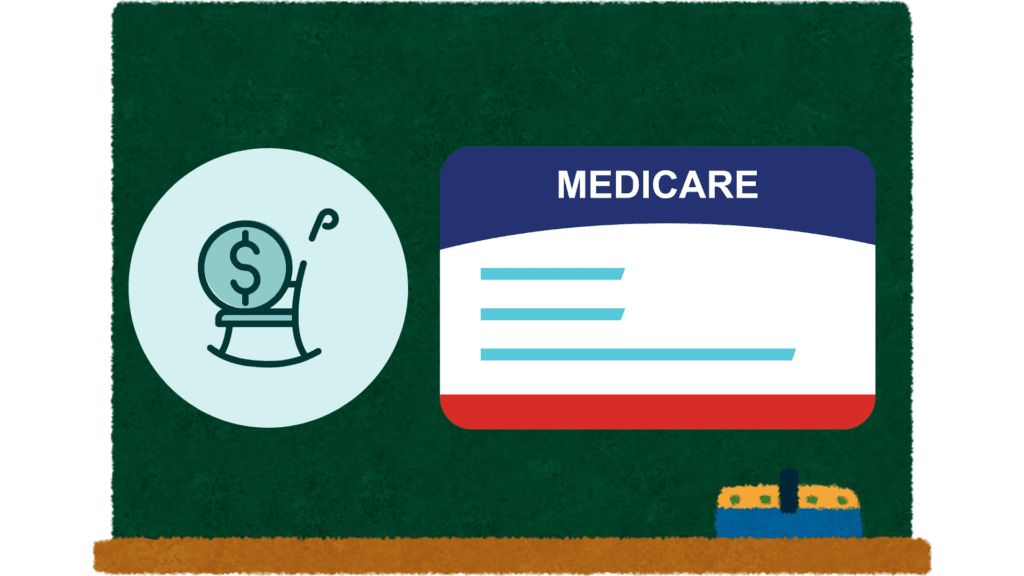Do You Need Medicare if You Have Retirement Benefits?
Are you approaching retirement age and wondering about the necessity of Medicare when you already have retirement benefits? It’s a common concern among seniors, but fret not! Let’s dive into this topic together and explore whether Medicare is something you truly need.

Understanding Medicare
Medicare is a federal health insurance program primarily for people aged 65 and older. It helps cover various healthcare services, including hospital stays, doctor visits, preventive care, and prescription drugs.
Evaluating Retirement Benefits
When you retire, you might receive retirement benefits from your former employer or through a private retirement plan. These benefits may include healthcare coverage, but they might not cover all your medical needs. On top of that Medicare TYPICALLY does not see the health insurance you may receive in your benefits as “Credible Coverage”. Another great look at this can be found HERE. Generally you can ask your employer or plan, they HAVE to tell you.
Cost Considerations
Evaluate the costs associated with Medicare and your retirement benefits. While some parts of Medicare may be premium-free, others may require monthly premiums. Compare these costs with what you’re currently paying for healthcare.
Coverage Comparison
Compare the coverage provided by your retirement benefits with what Medicare offers. Consider factors like hospital stays, doctor visits, prescription drugs, and preventive care. Ensure your healthcare needs are adequately covered.
Enrollment Periods
Understand the enrollment periods for Medicare. Missing your initial enrollment window can result in penalties or delays in coverage. Make sure you enroll in Medicare at the right time to avoid any issues. A more in depth breakdown can be found HERE.
Assessing Healthcare Needs
Assess your current health status and anticipated healthcare needs. Consider factors like chronic conditions, medications, and the frequency of doctor visits. Ensure your healthcare coverage aligns with your needs.
Importance of Preventive Care
Medicare emphasizes preventive care, including screenings, vaccines, and wellness visits. These services can help detect and prevent health issues early, leading to better overall health outcomes.
Navigating Medicare Parts
Medicare consists of different parts, including Part A (hospital insurance), Part B (medical insurance), Part C (Medicare Advantage), and Part D (prescription drug coverage). Understand how each part works and whether you need additional coverage.
Considering Supplemental Coverage
Some seniors opt for supplemental coverage, such as Medigap plans, to fill gaps in Medicare coverage. Evaluate whether supplemental coverage is necessary based on your healthcare needs and budget.
Expert Advice
Consult with a qualified healthcare advisor (like us) to get personalized guidance. They can help you understand your options, navigate the complexities of Medicare, and make informed decisions about your healthcare coverage. Contact us below.
Frequently Asked Questions
1. Do I need Medicare if I have retirement benefits?
Yes, Medicare can provide additional coverage that complements your retirement benefits, ensuring comprehensive healthcare coverage in your golden years.
2. What if my retirement benefits already include healthcare coverage?
Even if you have healthcare coverage through retirement benefits, Medicare can still offer additional benefits and may cover services not included in your retirement plan.
3. When should I enroll in Medicare?
It’s essential to enroll in Medicare during your initial enrollment period, typically around your 65th birthday. Delaying enrollment may result in penalties or gaps in coverage.
4. What are the costs associated with Medicare?
While some parts of Medicare may have no monthly premiums, others require payment. Additionally, there may be out-of-pocket costs such as deductibles, copayments, and coinsurance.
5. How do I choose the right Medicare plan for me?
Consider factors like your healthcare needs, budget, prescription medications, and preferred doctors or healthcare providers. Compare different Medicare plans to find the one that best suits your circumstances.
Conclusion
In conclusion, while retirement benefits may provide some healthcare coverage, Medicare offers additional benefits and can help ensure comprehensive coverage in your retirement years. Evaluate your healthcare needs, compare coverage options, and seek expert advice to make informed decisions about your Medicare enrollment. Remember, your health and well-being are paramount as you embark on this new chapter of life.

 Previous Post
Previous Post Next Post
Next Post